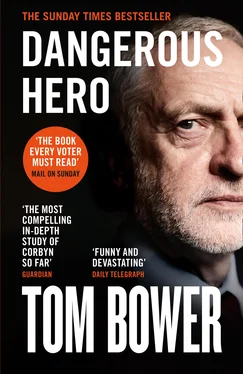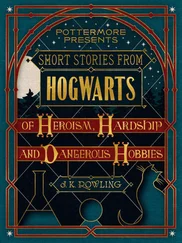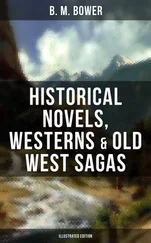1 ...8 9 10 12 13 14 ...21 Unexpectedly, although the Tories won a quarter of a million more votes, Labour emerged on election day as the largest party. Heath was ousted and Wilson returned as prime minister, knowing that he would have to call another election soon as he lacked an overall majority. However, for his supporters it was an important victory. The organised working class had overthrown a Tory government. Tony Benn would acclaim the result as a decisive moment. Rejoicing on the far left was met elsewhere with apprehension and dismay. The middle classes were visibly terrified by the prospect of widespread unrest, manifested by an outbreak of Marxists and anarchists squatting in empty houses, and the trade unions, led by Jack Jones of the Transport and General Workers’ Union, celebrating their return to power.
In Hornsey, Hugh Rossi survived Corbyn’s best efforts, albeit with a much-reduced majority. During the endless hours leafleting, canvassing and cajoling Labour’s supporters to the polls, Corbyn had met the woman who would become his first wife. Jane Chapman was twenty-three, an attractive university graduate researching the French textile industry in the 1920s for a doctorate at the London School of Economics. Soon after they met, Corbyn declared his feelings. ‘He professed love early on,’ she recalled, ‘and said that I was “the best of the best”, so I thought this must be the thing.’ Consumed by what she described as a ‘whirlwind romance’ over three months – ‘he constantly urged us to marry’ – she agreed, because ‘he was friendly and lively and seemed bright and not bad-looking’. Most important, both of them were devoted to changing Britain in a fundamental way. They would celebrate together at any sign that events were running in their favour: in April 1974 they were excited by the overthrow of Portugal’s fascist regime, and they rejoiced in the continuing defiance of left-wing organisations to government diktats : socialist councillors in Clay Cross in Derbyshire had been declared bankrupt after refusing to set low rates dictated by the Tory government, but their action made them martyrs to the left.
Corbyn and Chapman’s enthusiasm for their cause made an impression: their respective local Labour branches selected each of them to stand in the May 1974 council elections for Haringey, a north London borough that included Hornsey and that embraced both affluent areas in Muswell Hill and Highgate and severely deprived sections in the east, around the Tottenham football stadium. They were both elected. Two days later, on 4 May, they were married at Haringey Town Hall.
Neither set of parents was impressed by their child’s choice. Chapman’s mother, a lifetime Tory, was not pleased that her daughter, ambitious to be an MP, was marrying a poorly-off, uneducated trade union official. On her side, Naomi Corbyn disliked her new ‘alpha female’ daughter-in-law. It was wrong, she thought, to have such an obvious competitive element in a marriage. However, since the Corbyns avoided confrontation, nothing was said. Chapman became fond of her husband’s generous father, although she remained wary of his uncommunicative mother. From the outset the tensions were aggravated when Piers Corbyn arrived at the town hall looking even more scruffy than normal. Embarrassed by her son, Naomi swept him off to buy a shirt and a suit. They did not return until after the ceremony was over. Everyone then headed for the reception at Chapman’s father’s bowling club in Weston-super-Mare, 140 miles from London, before the newlyweds headed off for a brief honeymoon in southern Ireland.
They returned to a tiny ground-floor studio room in Etherley Road in Haringey, which they had bought with a mortgage from the Greater London Council. One year later, they moved to a bigger ground-floor flat in Lausanne Road, near Turnpike Lane. Several chickens, a cat christened Harold Wilson and a dog named Mango ran around the garden. Married life became a succession of meetings, demonstrations and campaigns. At 5.30 on some mornings they would head for a picket line to support strikers, then meet up again at the end of the day. Their social life was confined to meetings of the Labour Party, functions to support Troops Out and Cuba Solidarity, council meetings and demonstrations, while Chapman intermittently researched her doctorate in Paris and Corbyn ostensibly worked for the AUEW.
To Corbyn’s delight, as a councillor he represented mostly immigrants: Greek Cypriots, Asians and Afro-Caribbeans. He genuinely enjoyed mixing and socialising with the rainbow of communities in Haringey, assiduously attending their main social events and promising to look after their needs. However, that did not include the inhabitants of Chapman’s ward adjoining Stamford Hill, in the south of the borough, where the Orthodox Jews were the backbone of local Labour. To Chapman’s regret, while she showed interest in her husband’s constituents, he was indifferent to those in her ward, including her fellow councillor Aaron Weischelbaum, who was Jewish. ‘Jeremy,’ she explained, ‘was conflicted because he supported Palestine and the abolition of Israel so that Palestinians could recover their homes.’ Corbyn spoke of Israel as the worst example of American imperialism. Occupying land, in his opinion, was an obvious form of colonialism. This made Zionists racist, and therefore he opposed Israel’s existence. He condemned the Balfour Declaration, the British government’s promise in 1917 of a homeland for the Jews, and dismissed the effect of the Holocaust as explaining the Jewish people’s longing for their own country after 1945 to avoid future persecution. In Corbyn’s hierarchy of oppression, the descendants of slaves were the most victimised, while Holocaust survivors were at the bottom of the list. He did not distinguish between Jews in London and Zionists in Tel Aviv. To him, they were all guilty.
Among the surprises for Chapman was the absence of books in her husband’s life. Throughout the four years of their marriage, he never read a single book. He did not think deeply about ideology or political philosophy. Her initial judgement that he was ‘bright’ was mistaken. As an agitator, he relied on his wife for political friendship. ‘He didn’t get depressed. He was driven by his motivation to change society,’ she recalled. His handicap, he was acutely aware, was his lack of a working-class pedigree. By then his parents had moved to a new home in Wiltshire – chosen to enable them to pursue their burgeoning interest in archaeology. During Corbyn and Chapman’s visits for Sunday lunch, politics were politely discussed, but Corbyn’s parents never mentioned that they had been present at the Battle of Cable Street, or that David had ever considered going to fight in the Spanish Civil War. Their son’s introduction of those key events into the biographies of his parents would come much later. Both smacked of fiction.
To compensate for the limitations of his background and education, Corbyn played on his status as a councillor, trade union official and energetic activist. He became expert at working out how to win new votes, and would spend hours calculating where and how Labour could maximise its strength in Hornsey. Although he never read Trotsky’s writings, he adopted his ideas of process, and mastered the political skills to produce what Trotsky had called ‘a permanent state of unrest’ for eventual victory.
With both Corbyns’ support, Haringey’s ruling Labour group increased the rates by 23 per cent, making them the highest in the country. Shortly after, the borough’s housing workers went on strike for more pay. Consistent with socialist policy against any dismissals, Corbyn successfully urged his fellow councillors to award the hefty increase. In recognition of his commitment he was made a vice chair of the subcommittee on development, and would boast that the 42 per cent increase in the council’s overall budget, financed by local ratepayers, had allowed Labour to double the number of its staff. Annoying Haringey’s middle classes gave him particular delight. Faced with a huge housing problem after the arrival of thousands of Cypriot refugees in London, Corbyn proposed building homes on green parkland. Local residents were outraged. The rich, he scoffed, clearly disliked living alongside immigrants – but they would have no choice.
Читать дальше










